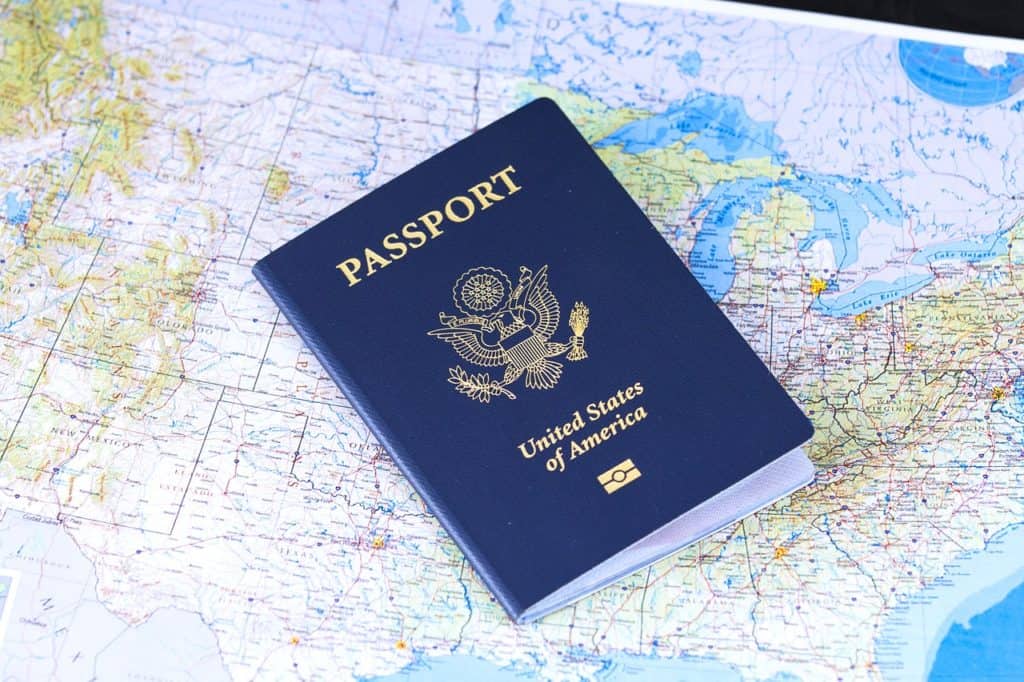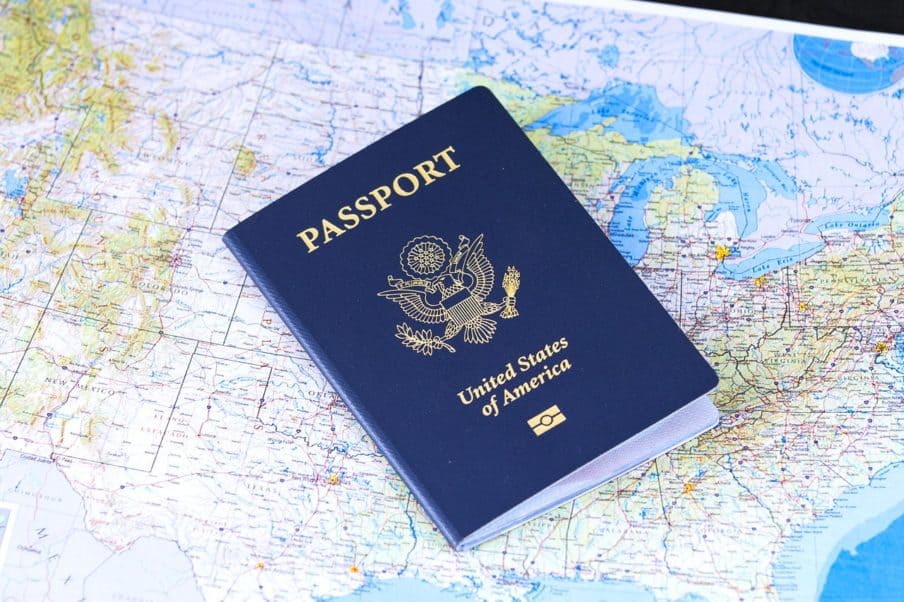
Lets face it , losing your passport or having it stolen in Costa Rica can be a traveler’s nightmare. Whether you are in Costa Rica on vacation or your an expat living in Costa Rica, having this happen can be frustrating.
However, the experience did teach me a couple of valuable lessons on what to do that I have never forgotten and which I would like to pass on in case you have the unfortunate experience of losing your passport while in Costa Rica.
In this post, we will be discussing what to do after losing your passport and what to bring with you to the consulate that will help to get a new tor temporary passport more quickly. Let’s dive in!
Replacing a Lost or Stolen Passport in Costa Rica

The first step in replacing a lost or stolen passport is to file a report with the Costa Rica police as this will speed up the process in getting a new passport and confirm with the embassy that it was lost or stolen.
If, for some reason you are unable to file a police report due to language or other issues, you can still get a new passport, it just may take more explaining to the consulate official. Whether you lose or have your passport stolen you sill still need to fill out form DS-64 You will then be required to fill out for DS-11
It is generally best to do this before going to the consulate in Costa Rica. You can do this by going somewhere that offers free internet such as a workspace office or even better at the hotel or hostel you are staying at, you will speed up the process.
However if you are unable to get to a place where you can print these forms out, you will be able to do it at the consulate or embassy.
Hopefully before you left on your trip you put up copies of your passport and ID to the cloud or a place where you can access it. If you did so, while you are online for the necessary Department of State forms, go ahead and print out copies of these as well.
Next thing you should do is get a passport photo taken according to the size and dimensions required.
For more information on how what is a required for a passport from the United States go to the Department of State Website
How To Replace Money and Credit Cards
If the situation is more then dire and you have not only lost your passport but you also do not have any money or credit cards, then you should get online and contact your friends or family, for example via Skype or Facebook and get them to send money via Western Union or even Zelle (or similar).
If you go the Western Union route, you can collect the money that has been wired to you at a the closet Western Union office, provided you have an ID with a photo.
You should be able to collect your money using the ID you have printed and by showing your police report and embassy/consulate document.
Getting money this way can tale a few hours but at least you’ll have something in a few hours. Since it may take some time to get the money or if all this happens a an inconvienient time (doesn’t it always?) you may want to ask your friends or family to book a room if need be.
Going To The Embassy or Consulate

Regardless of what country you are from, in order to get a replacement, you will need to be in San Jose. You may need to be a here a few days so you should plan accordingly.
Bring the following to the Consulate or Embassy
- A Passport Photo
- Identification (for example a driver’s license)
- Evidence of U.S. citizenship (birth certificate, photocopy of your missing passport)
- Travel Itinerary
- Police Report, if available
- DS-11 Application for Passport (if you cannot do it before you fill it out at the time of application)
- DS-64 Statement Regarding a Lost or Stolen Passport ( if not done before it may be completed at time of application)
Items not allowed at the Embassy Or Consulate grounds
This list is not exhaustive and other items may be prohibited at the discretion of security staff.
- Cellular phones
- Bags, luggage, backpacks, purses
- Any type of electronic devices (including laptops, cellphones, iPads, cameras, smart watches, etc.)
- Weapons of any kind, explosive materials, tools of any size
- Drinks, food
- Strollers
Tips and Suggestions when Replacing a Lost or Stolen Passport
Keep in mind that consulate hours, for example the US Consulate in Costa Rica, are very limited and you need to make sure you get there between the hours they are open because it would be a very rare case if they helped you outside of these hours.
Of course, this all comes at a price so be prepared to pay and make sure if you are getting money wired to you that they send some for this as well. This price is going to vary but just make sure to have this sent to you with the other money request.
Once you get back home you can apply for a full-validity (or standard) passport. If your lucky and you were granted a standard passport when you received your new passport abroad, then you don’t need to worry about this step.
But if you were issued a limited-validity, emergency passport, it’s a good idea to apply for a new full-validity passport as soon as possible once you’ve arrived home.
If you get an emergency passport in Costa Rica, once you get home you will need to turn this one in when get a new standard passport. Also note that sometimes with emergency passports you may get more questions then usual from the immigration authorities.
I know this from personal experience as I was given a hassle in London on my way back home as my flight stopped there. But I think this was the exception rather then the rule.
How to Prevent Losing or Having Your Passport Stolen in Costa Rica

There are different theories on the what you should with your passport when you arrive in Costa Rica The first one is that you should always carry it with you.
The idea being that you can’t lose it, forget it, or have it stolen from where your staying if you always have it on you. If you go this route, be sure to have the passport concealed in either a money belt (also concealed, of course) or someplace on your person that is out of sight.
The second one is that you should leave it at the hotel or place your staying at, usually concealed in some clothing or similar in the place you are staying.
If your hotel in Costa Rica has a in-room safe all the better and you can keep it in here. The idea with this method is that this avoids any potential of leaving it somewhere or having something happen to it while you are out and about and your also going on the assumption, or your playing the odds, that its less likely that something will taken from your room then from yourself while you are out touring or that you leave it somewhere by accident..
The most important thing, regardless of which way you is too remain consistent.
So if every time you arrive toyour hotel and put your passport in a safe, keep doing it. Same with any other way you handle your passport as the idea is just to stay consistent so you always know where it should be.
I, personally, subscribe to the second option as I have never had any problem leaving it in any place I have stayed and it keeps me from being concerned about it while I am walking around.
This is particularly true when I at beach in Costa Rica like Manuel Antiono or Tamarindo as opposed to a wet ares like Monteverde or say water water rafting since places where you can keep passport is more limited.
If you decide take the passport with you, then just make sure you always keep it somewhere on you and not in your backpack or shoulder bag. It far too easy for some of the pro’s out there to get your bag.
If you happen to be in a country that requires that you always have some form of ID on you, at all times, just bring your drivers license and photocopy of your passport.
This should more then suffice for any official asking for this.
Final Thoughts
By just taking a few precautions and having a plan in place to replace your passport, should anything happen, can help ensure that trip goes as smooth as can be from that moment forward.

